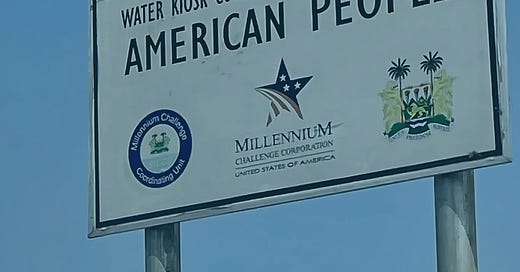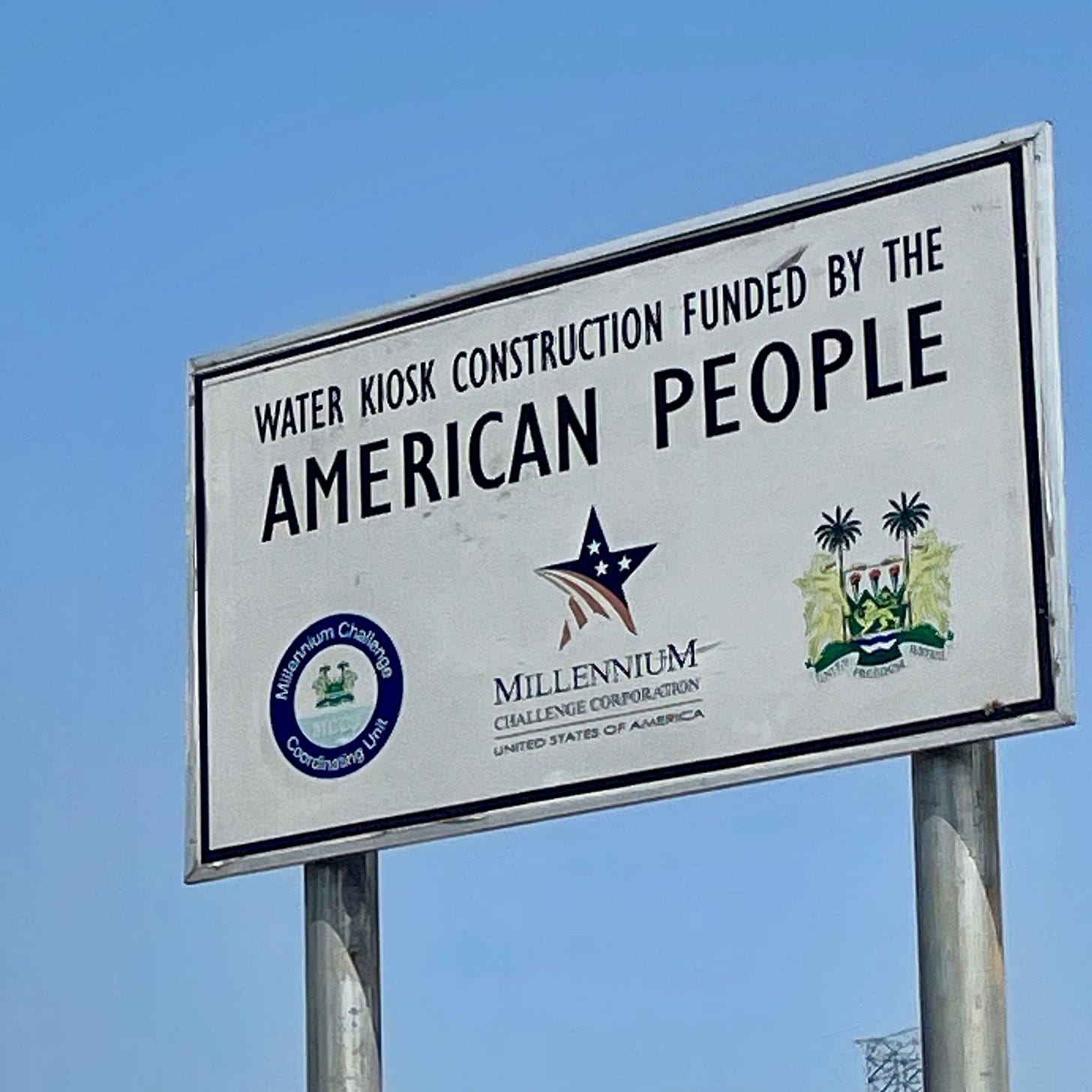The discomfort of aid
I remember driving past this billboard in the outskirts of Freetown, Sierra Leone in December 2022 and thinking: really? Is this what USAID is STILL doing?
No more. The disintegration of USAID by Trump and Musk is brutal. What for a few days felt like a bit of a déjà vu, at least for those of us in the UK – a budget freeze, the prospect of a merge – rapidly revealed itself as a true bloodbath. Musk needed a sacrificial lamb to prove the mighty power of his DOGE doctrine before the judges would muscle in. And USAID fitted the bill.
In many ways, it worked. While it is increasingly clear that Trump is on very shaky legal and possibly political grounds on many of his proposed ‘reforms’, aid was an easy target for an early ‘shock and awe’ move. Him and Musk acted as if the consequences did not matter: of course they do and the judges are now on their case to hopefully fix at least some of the damage done. But as very liberal Ezra Klein of the very liberal New York Times says, ‘there is no constituency for USAID beyond a small liberal elite’. I would go even further and - perhaps controversially - say that there is (almost) no constituency for aid beyond the aid ‘sector’ and that the ‘sector’ is in part to blame for this. Understanding why this is the case is key in my view to make the most of this undoubted moment of crisis, learn a few lessons and do things differently.
Don’t get me wrong, I am not suggesting that people in the US and beyond don’t care about global inequality, poverty, the fate of our dying planet or the suffering caused by war. They do, WE all do. But they just do not see, feel or (importantly) understand how aid is helping fix these enormous, tricky and persistent problems.
Why? The traditional response to ‘what is the problem with aid’ is that people, voters, do not trust how their hard earned taxpayers money is spent. This is, in many ways, a red herring. Time and time again it has been proven that ‘aid works’ and that the level of scrutiny on aid budgets is unheard of in any other area of government spending.
Money is not the problem with aid.
The problem with aid is the story of aid. Aid is based on a fundamentally problematic, and increasingly inaccurate assumption: that the world is made of two communities, ‘blocs’ for old timers. The rich, developed world, the Global North, the West, the ‘old’ world who gives aid: and the poor, developing world, the Global South, the Rest, the ‘new’ world who receives aid. The first is ‘us’, the latter is ‘them’. The USA, Europe is ‘us’. Africa is very much ‘them’. But China and South Korea, would you believe, is also ‘them’. While Japan is very much ‘us’, for some reason. We are ‘donors’ they are ‘recipients’. ‘We’ give, ‘they’ take.
That this is a flawed and anachronistic story is clear to everyone: this is not the world we live in in 2025. But inaccuracy is just the tip of the iceberg: the aid narrative and the practices still very much in place in the ‘sector’ are profoundly discriminatory and experienced by many of ‘them’ as offensive, humiliating even. As for ‘us’ – voters in the Global North, the problem is we just do not see or feel how any of this relates to us, to our daily struggles, to our identity, religion, food, you name it. Even our floods and wildfires are ‘our own’ – reckoning with the global nature of the climate emergency is still something to get our head around. In an increasingly divided world, far from creating a common ground, aid divides us across borders.
No amount of outrage to the brutal culling of USAID can fix this. Yes, many in the ‘sector’ are also recognising the urgent need for reform and are calling for a change of direction, a regrouping across disciplines and communities to rethink a new and more inclusive global order, embracing the principles of decolonisation, equal partnerships and more. Yet we have been there many times before, most recently with Covid. We were going to build back better: then the vaccine came, and global solidarity went out of the window. A genocide is still unfolding in Gaza, ‘we’ could not act until it is probably too late.
But what does it all mean in practice, I hear you say with a hint of eyes rolling and ‘here we go again’? Am I saying that the money for ‘the poor’ should stop flowing? Or that we should dismantle the international system and its institutions?
This time I am not falling for it: working on migration taught me a very hard lesson about how profoundly a divisive narrative of ‘us and them’ can harm humanity and any attempt to ‘address global challenges’. We must start with the story we tell, the words we chose to use.
And so perhaps it is time to retire an organisation called USAID and remove that ‘funded by the American People’ sign. We are either all in it together or we are not.






